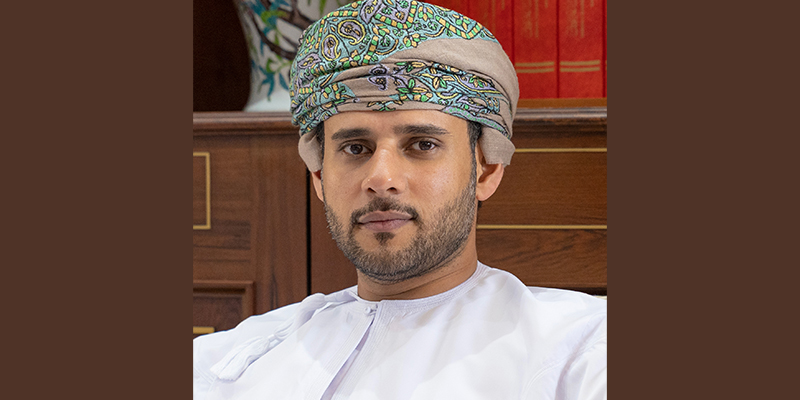
03 Apr Interview with H.E. Sheikh Faisal bin Abdullah Al-Rawas, Chairman of Oman Chamber of Commerce and Industry (OCCI), Sultanate of Oman
JT: How is the OCCI contributing to Oman’s Vision 2040, particularly in promoting private sector growth and diversification?
Al-Rawas: Oman Vision 2040 focuses on sustainable development, innovation, and global integration, with the private sector playing a crucial role in economic diversification. As the private sector’s official representative, OCCI works closely with the government to implement development plans, ensuring the industry is central to executing economic and development projects. Aligned with Vision 2040, OCCI focuses on improving the business environment, fostering growth across Oman’s governorates, and driving diversification. Key initiatives like the franchising program, the CFO initiative, and various workshops support the private sector. OCCI also organizes international forums to promote diversification and regional development. By empowering the private sector, OCCI aims to increase sustainability and its contribution to Oman’s GDP, positioning the country as a competitive, diversified economy that attracts investment and fosters sustainable growth.
JT: What measures is the OCCI taking to attract foreign direct investment, and what sectors hold the greatest potential for international partnerships?
Al-Rawas: FDI is vital for Oman’s sustainable growth, bringing technology, knowledge, and foreign currency. The OCCI is focused on attracting FDI through initiatives such as hosting over 35 trade delegations annually, organizing trade missions, and maintaining joint business councils, including one with Japan. The Chamber also participates in global exhibitions to promote Omani products and investment opportunities and works on establishing international trade offices. To enhance the investment climate, OCCI reviews economic laws and regulations. Key sectors for FDI include manufacturing, tourism, mining, food security, transport, education, healthcare, and IT. Through these efforts, OCCI has successfully facilitated partnerships between Oman’s private sector and foreign investors, positioning Oman as a global investment hub and supporting Vision 2040’s goals of economic diversification and sustainable development.
JT: What role is OCCI playing in guiding businesses toward greener practices and renewable energy adoption?
Al-Rawas: Environmental sustainability is a key pillar of Oman Vision 2040, which includes a goal of net-zero carbon emissions by 2050. The Oman Chamber of Commerce and Industry (OCCI) supports this transition by working with government entities to propose sustainability policies and raising awareness within the private sector. The Chamber conducts studies on the business impact of decarbonization and encourages investments in renewable energy and green hydrogen—areas where Oman plans to invest over $30 billion to become a leading global producer by 2030. OCCI also promotes sustainable business practices, helping companies align with Vision 2040 objectives while enhancing their competitiveness. Through these efforts, the Chamber supports Oman’s goals of diversification and environmental stewardship.
JT: How is the Chamber promoting digital transformation and innovation within Omani businesses to stay competitive globally?
Al-Rawas: Digital transformation is vital to Oman’s global competitiveness. Through its Digital Economy and Artificial Intelligence Committee, OCCI collaborates with authorities to develop regulatory frameworks that attract investment in the digital economy. The Chamber fosters an innovation-friendly environment by addressing business challenges and supporting entrepreneurship. Oman’s telecom and IT sectors are central to diversification efforts, backed by strong infrastructure and a skilled workforce. OCCI promotes startup growth, encourages research and development, and supports digital talent development. These initiatives aim to increase the digital sector’s contribution to Oman’s non-oil GDP and attract venture capital investment.
JT: How would you describe the current state of economic relations between Oman and Japan, and what are the main areas of collaboration?
Al-Rawas: Economic ties between Oman and Japan have strengthened over the years, supported by strong trade exchanges and institutional cooperation through the Omani-Japanese Friendship Committee and the Oman-Japan Business Council. However, there is still room to expand Japanese investment in Oman, as Japan is not yet among the top ten investors. Key sectors with growth potential include manufacturing, tourism, renewable energy, logistics, education, and IT. Both countries also share a commitment to achieving net-zero emissions, creating opportunities for collaboration in renewable energy, the circular economy, and green infrastructure. Additional prospects include automotive trade, space, medical equipment, metals, agriculture, and heavy industries, which can further deepen this partnership and promote sustainable development.
JT: Could you elaborate on Oman’s participation in Expo 2025 Osaka and share the key message the Sultanate aims to convey through its pavilion?
Al-Rawas: Oman sees World Expos as valuable platforms for cultural exchange and global engagement. At Expo 2025 Osaka, the Sultanate will showcase its diverse landscapes, rich heritage, and commitment to peace and dialogue among civilizations. The pavilion will highlight Oman as a unique tourist destination and reinforce its position as a global trade and investment hub. Economically, the focus will be on promoting Oman’s business-friendly environment and sectoral opportunities, fostering international partnerships. The Oman Chamber of Commerce and Industry proudly supports this initiative, facilitating public-private collaboration to drive sustainable economic growth. Expo 2025 presents an opportunity for Oman to highlight its achievements, innovations, and vision for the future while strengthening global connections.
JT: Do you have any closing remarks for our readers who are considering visiting or investing in Oman?
Al-Rawas: Oman welcomes visitors and investors with open arms, offering a unique blend of history, natural beauty, and renowned hospitality. As a business destination, Oman provides a stable, investor-friendly environment with modern infrastructure, a strategic location along key maritime routes, and a supportive regulatory framework. The Sultanate is one of the region’s most competitive markets, offering growth opportunities and attractive incentives across multiple sectors. Whether for leisure or investment, Oman presents immense potential, and we look forward to welcoming those eager to explore its many opportunities.
